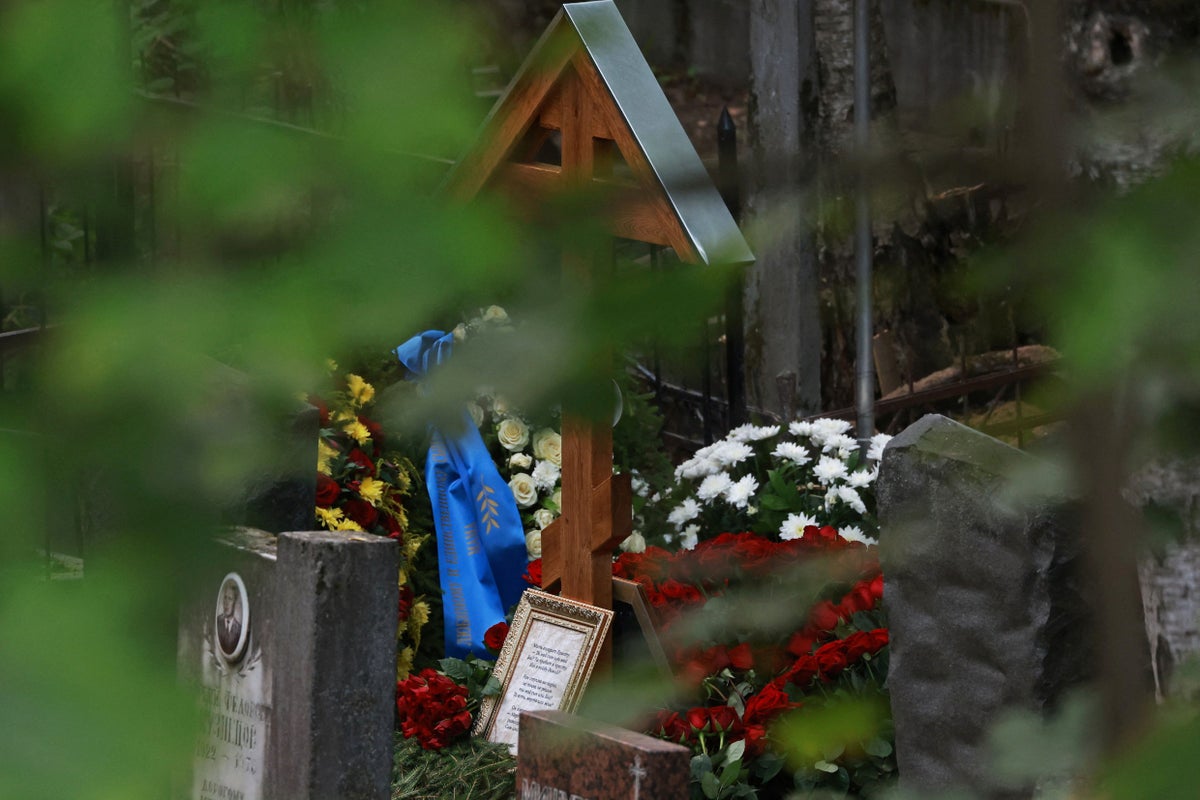
White House Press Secretary Karine Jean-Pierre on Tuesday declined to say whether the US has officially implicated Russian President Vladimir Putin in the death of late Wagner Group leader Yevgeny Prigozhin but noted the long list of those perceived as opponents to Mr Putin meeting early demises.
Speaking at Tuesday’s daily White House press briefing, Ms Jean-Pierre was asked about Mr Putin’s non-attendance at a funeral service for Prigozhin, who died earlier this month after his private aircraft broke up mid-air in Russian airspace.
US officials have said the break-up of Prighozin’s airplane was likely caused by a bomb planted on board.
But Ms Jean-Pierre did not say whether the US believes Mr Putin was involved in his former ally turned enemy’s death, and said attendance at the funeral was for the Russian leader to speak to.
“I don’t have any new assessment for you. But it seems pretty evident what happened here ... as the president said ... ‘there’s not much that happens in Russia that Putin is not behind,’” she said.
“We all know that the Kremlin has a long history of killing its opponent. That is the history of the Kremlin,” Ms Jean-Pierre continued, adding later that Prighozin — who she called “a cold-blooded killer” — had been killed less than two months after speaking out against frustrations with Mr Putin’s conduct of Russia’s war against Ukraine.
“So, you know, it’s very clear. It’s pretty evident what happened here,” she added.
Pressed further on whether her remarks represented any new US government position on Prighozin’s death, Ms Jean-Pierre later clarified that she did not have “any new assessment” on the matter.
Yevgeny Prigozhin, left, and Vladimir Putin were longtime allies until the Wagner chief led a brief mutiny against the president— (Copyright 2011 The Associated Press. All rights reserved)
Since Mr Putin took power in Russia on the last day of 1999, a series of his political opponents have met violent or suspicious deaths.
They include opposition politician Boris Nemtsov, who was shot dead outside the Kremlin in 2015; investigative journalist Anna Politkovskaya, who was shot outside her apartment in 2006; Sergei Magnitsky, a lawyer for US-born British businessman Bill Browder, who was jailed and then beaten to death in 2009 while investigating state corruption; and former FSB whistleblower Alexander Litvinenko, who was murdered in London with the radioactive isotope polonium-210 in 2006.
Other critics or perceived enemies have survived poisoning attempts: Alexei Navalny, Mr Putin’s leading political opponent, who has been jailed for 19 years on what observers say are trumped up charges; Vladimir Kara-Murza, a Russian-British journalist who has been jailed for 25 years; the former Ukrainian president Viktor Yushchenko; and ex-GRU double agent Sergei Skripal and his daughter Yulia, who were poisoned with the nerve agent novichok in Salisbury, England, in 2018.
Several businessmen who fell foul of the Putin administration have died in the UK in circumstances that aroused suspicion, including Boris Berezovsky, Badri Patarkatsishvili and Alexander Perepilichny.
During the Soviet era, political assassinations of high-profile figures, such as Leon Trotsky and Sergei Kirov, and political purges which saw millions of people killed or sent to forced labour camps, came to be seen as routine.







